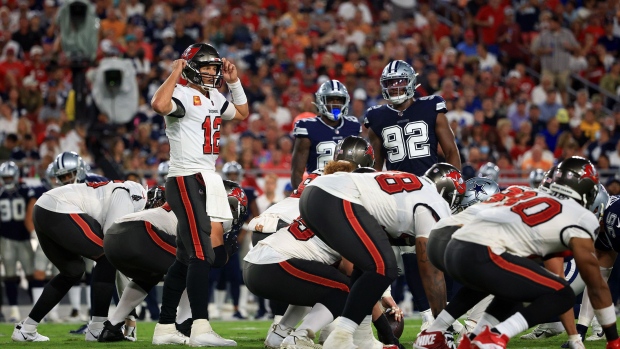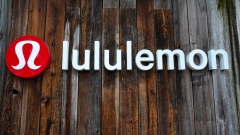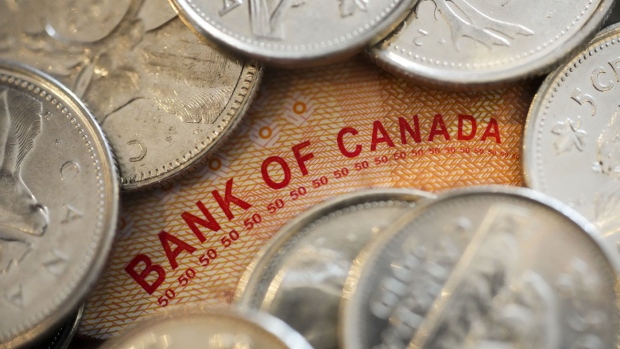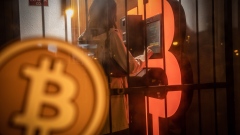Sep 12, 2021
Football’s Gambling Boom Has Investors Betting on the House
, Bloomberg News

(Bloomberg) -- The house always wins.
That’s what investors are betting this football season when Americans are expected to wager more than $20 billion.
Shares of DraftKings Inc., Penn National Gaming Inc., and Caesars Entertainment Inc. have rallied more than 20% in the past three weeks on predictions college and professional football bets will triple from a record last year.
Betting platforms have seen a flood of new users after going live in six additional states this year, bringing the total to 26 states. Both online sportsbooks and traditional casinos are expected to pull in as much as $1.5 billion in revenue, according to projections by PlayUSA, a guide for legal gambling.
“It’s very seldom to see the market segment grow in front of you so quickly,” said Yaniv Sherman, U.S. head of betting platform 888 Holdings Plc. “There’s no way around it. The U.S. represents the biggest regulated online gaming opportunity in recent history.”
Look no further than Thursday night’s National Football League opener between Tom Brady’s Tampa Bay Buccaneers and the Dallas Cowboys. DraftKings took more than 1.5 million bets on the game, distributing more than $54 million to winners.
A bet on sportsbooks themselves makes sense, given demand is still in the first quarter. By 2025, the total value of wagers placed in the U.S. could soar to $180 billion, according to an analyst with Cathie Wood’s ARK Investment Management LLC.
However, a payout for investors isn’t guaranteed. Getting customers to test out platforms is expensive, with millions spent on advertisements and promotions that reward first-time users. The competition makes it difficult to turn a profit. As such, Wall Street analysts don’t expect to see positive earnings at DraftKings -- one of the leading platforms -- until at least 2024.
The way sportsbooks generate revenue (not necessarily a profit) is quite simple. While they can’t control what happens in a given game or season, they can make money by moving odds, aiming for a balance of gamblers on both sides of a given wager.
For instance, if a user makes a $20 bet with standard odds and wins, their gains would likely be $18. If a sportsbook achieves its goal of collecting as many bets as possible on both sides, they can capitalize on the commission they take from each bet.
The NFL has historically been against sports gambling, but recently changed course amid speculation it could boost viewership. The 2021 season is the first time the league will allow sportsbooks to buy ads during games, reversing a decades-long stance against betting on the sport. But a jump in ad spending could eat into betting platforms’ profits even more.
The path to actually turning a profit has been a key topic for investors chasing high-flying tech companies like DraftKings. Bookmakers and peers across the industry are on a hunt to find a quicker pathway to profitability. But in the meantime, it’s likely the industry is headed for more takeouts.
“At the end of the day you’ll have three to four very strong brands in the U.S. where the rest of the players either are fighting for scraps or get consolidated into larger companies,” said Nicholas Grous, an analyst at Wood’s ARK. The firm holds more than $850 million in DraftKings stock across three of its exchange-traded funds, data compiled by Bloomberg show.
The industry has already seen billions in mergers since last month when Penn National acquired Score Media & Gaming Inc. and DraftKings snapped up Golden Nugget Online Gaming Inc.
Companies with exposure to online betting have had a stellar run since the onset of the pandemic, but Wall Street is less convinced about future gains. Shares of DraftKings are only expected to gain 13% over the next 12 months, according to price target data compiled by Bloomberg.
“There will be massive sector growth, but the reason to be skeptical in the medium-term is that you can’t spend more money than you’re making forever,” said Jason Ader, chief executive officer at SpringOwl Asset Management. “It’s going to be fun for the bettors. For the shareholders of the company? We’ll see.”
©2021 Bloomberg L.P.























